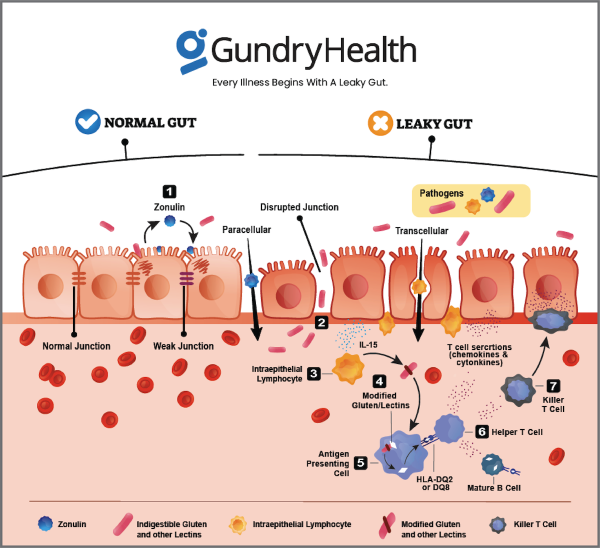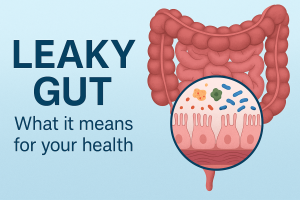Understanding PANDAS and PANS: A Comprehensive Guide by Gundry Health
Pediatric Autoimmune Neuropsychiatric Disorder Associated with Streptococcus (PANDAS) and Pediatric Acute-onset Neuropsychiatric Syndrome (PANS) are two clinical diagnoses given to children who have a sudden onset of neuropsychiatric symptoms, including obsessions/compulsions, food restriction, tics, and other abnormal movements, following an infection or other inflammatory reaction. At Gundry Health, we are committed to providing thorough information and effective solutions for these conditions.
Defining PANDAS and PANS
PANDAS is an autoimmune condition that occurs when a streptococcal infection triggers a misdirected immune response resulting in inflammation on a child’s brain. This inflammation can lead to abrupt onset or worsening of neuropsychiatric symptoms.
PANS, on the other hand, is a larger umbrella term that includes PANDAS. It is used to describe the same clinical presentation when the trigger is not known or is caused by infections other than streptococcus.
Identifying Signs and Symptoms
Children with PANDAS and PANS often experience sudden and dramatic onset of obsessive-compulsive disorder (OCD) symptoms along with two or more additional symptoms.
Symptoms
The symptoms of PANDAS and PANS can appear overnight or over a few days and may quickly become severe. Children with PANDAS or PANS may experience obsessive-compulsive disorder (OCD), anxiety, irritability, uncontrolled emotions, depression, and have difficulty with schoolwork. In addition, they may have symptoms of separation anxiety, anorexia or disordered eating, urinary frequency, acute handwriting difficulty, and purposeless motor movements.
Causes, Triggers, and Diagnosis
PANDAS is hypothesized to be the result of autoimmune antibodies mistakenly attacking an area of the brain, the basal ganglia, following a Streptococcus pyogenes (Group A Strep) infection. Recent research has shown that other infectious agents such as mycoplasma, mononucleosis, Lyme disease, and the H1N1 flu virus can cause similar sudden-onset symptoms, leading to a condition known as PANS. The cause of PANS is unknown in most cases but is thought to be triggered by infections, metabolic disturbances, and other inflammatory reactions.
Diagnosis involves a careful review of symptoms and medical history, laboratory tests, and physical examinations. The Cunningham Panel™ is a blood test commonly used to assist in the diagnosis of PANDAS and PANS.
Diagnosis
Diagnosing PANDAS or PANS involves a comprehensive evaluation by a licensed healthcare provider. Treatment for PANDAS and PANS involves a three-pronged approach that utilizes psychiatric medications when appropriate to provide symptomatic relief, antimicrobial treatments to eliminate the source of neuroinflammation, and anti-inflammatory and immune-modulating therapies to treat disturbances of the immune system. Antibiotics can dramatically improve many patients’ neuropsychiatric symptoms, and once treated, the symptoms that came on overnight can stop almost as quickly.
Treatment Options
Treatment for PANDAS and PANS involves addressing the underlying infection, managing symptoms, and providing supportive therapies. This might include antibiotics, immune therapies, and medications to manage the neuropsychiatric symptoms. Cognitive-behavioral therapy is also an integral part of the treatment plan.
At Gundry Health, we offer comprehensive treatment plans tailored to each child’s specific needs. Our approach combines medication management, dietary and lifestyle modifications, and counseling services.
Gundry Health’s Role in Managing PANDAS and PANS
We understand the unique challenges faced by children with PANDAS and PANS, and their caregivers. We offer a range of services designed to support and assist families navigating these complex conditions. Our team is committed to providing the most up-to-date, research-backed treatment options to help improve the quality of life of our patients.
The main difference between PANDAS and PANS is the source of neuropsychiatric and neurocognitive symptoms. PANDAS initial onset results from a Group A strep infection, while PANS can result from an infectious or toxic trigger. PANDAS has a typical onset before puberty, while a PANS onset can occur at any age, even as an adult39.
The symptoms of PANDAS and PANS can appear overnight or over a few days and may quickly become severe. If you suspect your child may have PANDAS or PANS, it is important to seek a comprehensive evaluation by a licensed healthcare provider.
Remember, early diagnosis and treatment can significantly improve the prognosis of PANDAS and PANS. If your child is exhibiting symptoms, don’t hesitate to seek professional help. At Gundry Health, we’re here to guide you every step of the way.
Get personalized care and recommendations for PANDAS and PANS from Dr Gundry-Approved program
If you’re looking for more guidance about PANDAS and PANS disease than this short list of recommendations, Dr. Gundry’s unique health program is now available to you (without needing an appointment at one of Dr. Gundry’s two, waitlist-only West Coast clinics).
Thanks to the pioneering work of Dr. Gundry and his team at Gundry Health, patient care team trained in Dr. Gundry’s unique holistic methods are now available to help you craft your own personalized PANDAS and PANS program.
It’s easy to get started.
Simply click the link below to get more information about personalized PANDAS and PANS treatment plan options, so you can get expert analysis, diagnostic care, and a plan for tackling PANDAS and PANS, arthritis, or other autoimmune diseases.
Each patient care team member at Gundry Health is Board Certified and trained in Dr. Gundry’s renowned approach to functional medicine and care.
Get your personal lab data and talk to a U.S. licensed doctor. Click Here.







